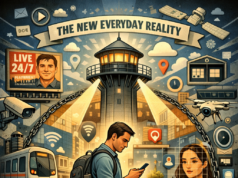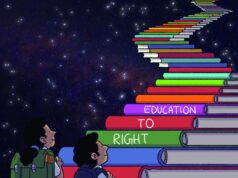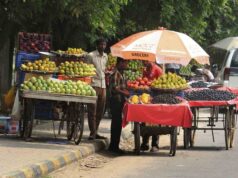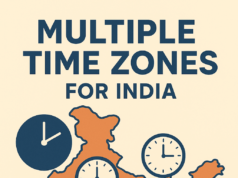“To deny people their human rights is to challenge their very humanity.” – Nelson Mandela
What if you had no say in who governs your country? What if speaking your mind meant risking punishment? Imagine living in a place where peaceful protests lead to arrests or violence, where your vote doesn’t count, and leaders act without any responsibility.
These are freedoms many people take for granted every day, freedoms rooted in human rights and democracy. They allow us to live with dignity, make decisions about our lives, and expect equal treatment. Without these rights, life becomes uncertain, unfair, and unsafe.
Human rights are the foundation of individual freedom, the freedom to live with dignity, exercise choice, and shape one’s own life. These rights protect every person’s equality and ensure no one is subjected to oppression or injustice. Democracy is the system that empowers individuals to choose their leaders freely and hold them accountable, making it essential for preserving human rights. When democratic institutions crumble, the inherent freedoms they protect often vanish, replaced by authoritarianism and repression.
Venezuela, a sovereign nation rich in natural resources and cultural heritage, is currently facing a severe crisis that strikes at the core of individual liberty. The country has shifted toward authoritarianism, with political freedoms severely restricted, electoral processes manipulated, and opposition voices silenced through intimidation, censorship, and imprisonment. This repression denies Venezuelans not only political choice but also their fundamental human rights, including freedom of expression and peaceful assembly.
In July 2024, following a disputed presidential election, thousands of Venezuelans peacefully protested to demand transparency and fairness. The government’s harsh response included arresting over 2,400 people and killing at least 22 protesters. This brutal crackdown highlights the grave challenges to democracy and human rights in Venezuela today.
The consequences for ordinary citizens have been devastating. Economic collapse, scarcity of essential goods, and a humanitarian emergency have forced millions to flee their homeland in search of livelihood and safety. Despite its sovereignty, Venezuela’s democratic institutions, the very structures designed to protect rights and freedoms have been hollowed out, undermining the essence of individual choice and freedom.
In this challenging landscape, the 2025 Nobel Peace Prize awarded to María Corina Machado is a powerful beacon of hope and resilience. Machado, a courageous leader within Venezuela’s pro-democracy movement, has stood unwavering against repression. Her tireless advocacy for transparent governance, rule of law, and democratic restoration embodies the ongoing fight of Venezuelans striving to reclaim their rights and rebuild a society rooted in justice and freedom.
This Nobel recognition sends a clear message: sovereignty alone does not ensure democracy or human rights. Genuine democratic governance demands vigilant defense by citizens and leaders who value liberty, especially when authoritarianism seeks to silence the people’s voice and erode their dignity. Machado’s prize serves as an inspiration for all who defend freedom, demonstrating that the spirit of democracy endures even under the harshest repression.
For advocates of democratic liberal governance, Venezuela stands as a cautionary example of the harms that arise when democratic institutions weaken and the rule of law is dismantled. Societies that uphold individual rights and freedoms create fertile ground for cooperation, innovation, and prosperity. On the contrary, authoritarianism stifles these possibilities, leading to social stagnation and decline.
María Corina Machado’s Nobel Peace Prize transcends personal honor. It is a global call to support democracy and human rights defenders everywhere. Venezuela’s story is a reminder that democracy, centered on individual freedom and choice, is precious and must be actively preserved to achieve lasting peace, justice, and human dignity for all.
Post Disclaimer
The opinions expressed in this essay are those of the authors. They do not purport to reflect the opinions or views of CCS.





